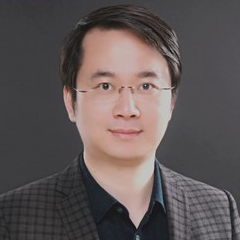Silicon Photonic Memories and Computing
A special issue of Micromachines (ISSN 2072-666X). This special issue belongs to the section "A:Physics".
Deadline for manuscript submissions: closed (20 September 2023) | Viewed by 575
Special Issue Editors
Interests: integrated photonics; silicon photonics; plasmonics; photonic neuromorphic computing
Interests: silicon photonics; phase change material for photonic devices; III-V and silicon hybrid integration
Special Issues, Collections and Topics in MDPI journals
Special Issue Information
Dear Colleagues,
Recent developments in Artificial Intelligence (AI), Big Data, Deep Learning, and Cloud Computing coupled with the globally stressed energy resources have highlighted two major problems in the current computing paradigm. The first is the need for increased speed and throughput of both computational devices and the associated memory devices due to the increased demand for these computationally intensive applications. Current von-Neumann-architecture-based computational platforms have reached a bottleneck due to their own physical limits. The second is the need for improved energy efficiency in the computation platforms, which otherwise have also been labeled as “Energy Hoggs”. This situation highlights a need to develop a new generation of memory devices and computational platforms that show better performance in terms of computational speed and energy efficiency. Silicon photonics presents a novel paradigm that fits the bill for a high-speed and energy-efficient computing platform. Recent works in silicon photonics have shown its immense potential for high-performance computing, artificial neural networks, bio-inspired computing, and high-speed memories.
This Special Issue welcomes original research articles and reviews. It welcomes important theoretical, simulation-based, as well as experimental contributions regarding photonic high-performance computing, photonic neuromorphic computing, photonic artificial synapses and neural networks, and next-generation photonic memories, as well as other topics related to silicon photonics.
We look forward to receiving your contributions.
Dr. Muhammad Shemyal Nisar
Prof. Dr. Linjie Zhou
Guest Editors
Manuscript Submission Information
Manuscripts should be submitted online at www.mdpi.com by registering and logging in to this website. Once you are registered, click here to go to the submission form. Manuscripts can be submitted until the deadline. All submissions that pass pre-check are peer-reviewed. Accepted papers will be published continuously in the journal (as soon as accepted) and will be listed together on the special issue website. Research articles, review articles as well as short communications are invited. For planned papers, a title and short abstract (about 100 words) can be sent to the Editorial Office for announcement on this website.
Submitted manuscripts should not have been published previously, nor be under consideration for publication elsewhere (except conference proceedings papers). All manuscripts are thoroughly refereed through a single-blind peer-review process. A guide for authors and other relevant information for submission of manuscripts is available on the Instructions for Authors page. Micromachines is an international peer-reviewed open access monthly journal published by MDPI.
Please visit the Instructions for Authors page before submitting a manuscript. The Article Processing Charge (APC) for publication in this open access journal is 2600 CHF (Swiss Francs). Submitted papers should be well formatted and use good English. Authors may use MDPI's English editing service prior to publication or during author revisions.
Keywords
- photonic computing
- photonic neuromorphic computing
- photonic neural networks
- photonic memory
- artificial synapse







